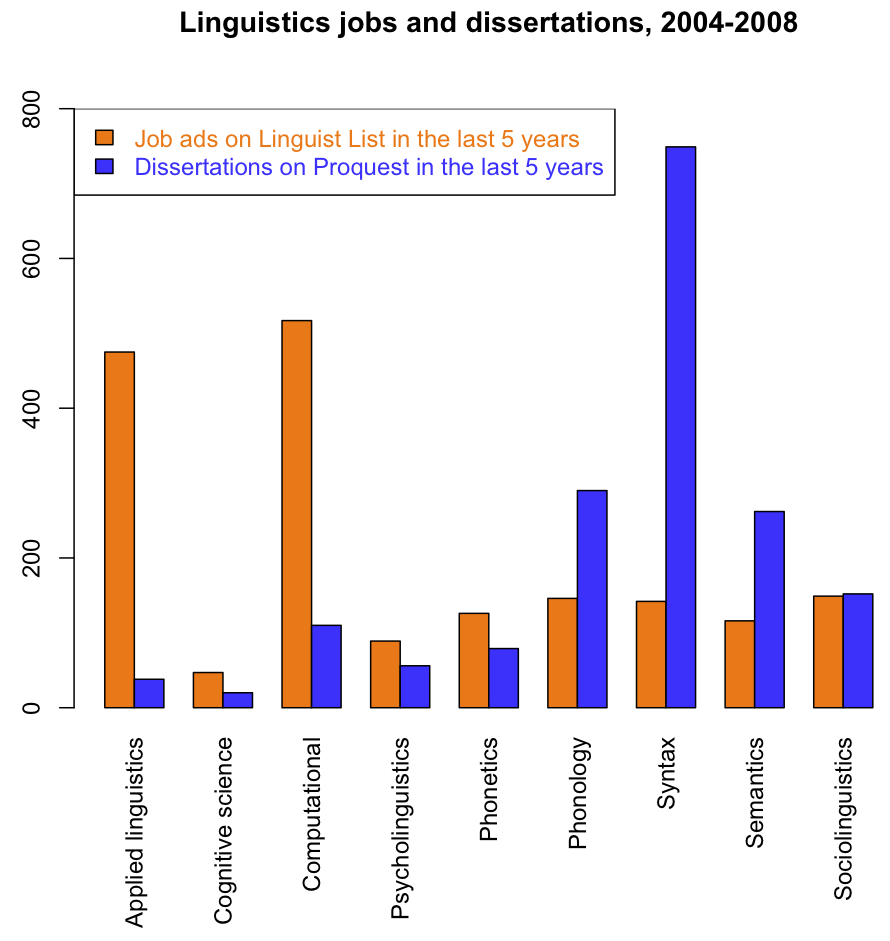Counting linguistics job ads and dissertations
Heidi and I both posted recently about the job market in linguistics (my post, and her collaborative post with Shannon Bischoff). There was some discussion in the comments about whether the numbers were truly comparable and whether we should base conclusions on just one year of data. This post attempts to make amends, as it were, by setting Linguist List job data from the last five years alongside the Proquest dissertation data that Shannon collected:
Update (2009-06-09): See this post for arguably more accurate counts for dissertations.
Read the rest of this entry »


